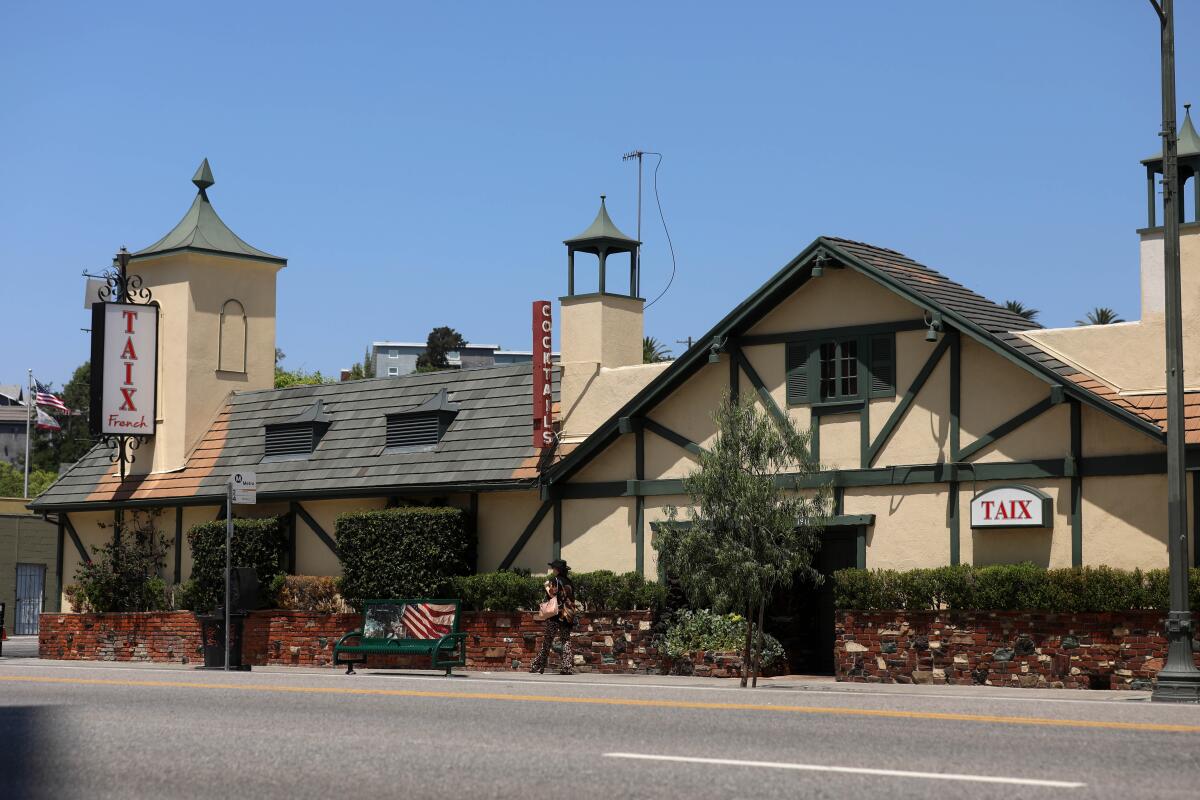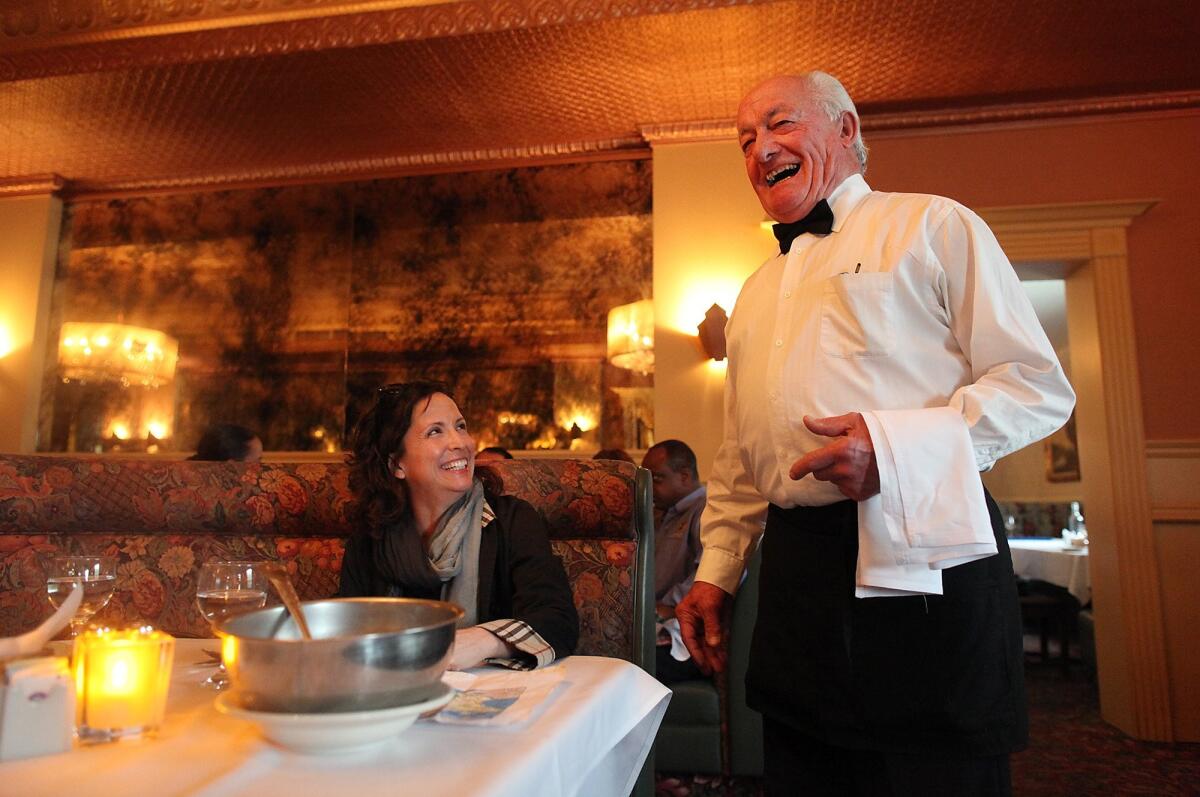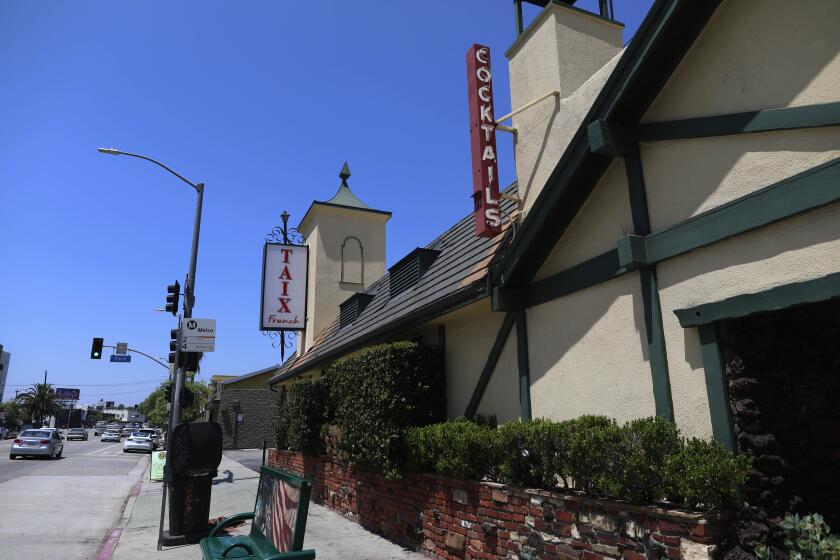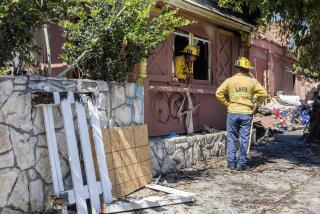Taix French Restaurant gets historic designation — but not for its Echo Park building

The Los Angeles City Council decided Wednesday to recognize Taix French Restaurant as a historic monument but granted no special protection to its Sunset Boulevard building.
Instead, the historic designation will extend to its location and three specific features of the longtime Echo Park haunt: its cherrywood bar top, a red-and-white Taix sign and another advertising “Cocktails.”
The Echo Park site is slated for redevelopment: Holland Partner Group plans to replace the Taix building with a new six-story complex that would bring in 170 units of housing, including 24 that are affordable to “very low income” households, and house a smaller version of the longtime restaurant.

The modified version of the historic designation, proposed by Councilman Mitch O’Farrell, had been welcomed by restaurateur Michael Taix, who has firmly backed the redevelopment plan for the site.
Michael Taix argued that preserving the Taix building could jeopardize the business itself because restaurant revenues have not kept up with its overhead costs. He said the “New Taix” that reopens on the redeveloped site would maintain its treasured atmosphere by reusing the bar top and installing other familiar features.
Historic preservationists argued that the French Norman Revival building itself had historic value as a gathering place for generations of Angelenos. They also warned that by limiting the designation to just a few features, the council had set a dangerous precedent that undermined the point of enshrining a historic monument.
Adrian Scott Fine, senior director of advocacy for the Los Angeles Conservancy, called it a “neutered” form of historic protection that could allow developers to try to dodge the more stringent level of environmental review that is required when a historic monument is torn down.
A developer’s plan has set off a debate over whether L.A. should try to protect the building that has long been home to Taix, a popular Echo Park restaurant.
Under Los Angeles city rules, historic buildings can still be altered and even demolished, but the requirements allow for more review before that can happen. Preservationists who pushed to make Taix a monument argued that housing could still be built on the site while incorporating the longtime building into the new project.
Susan Winsberg, who argued to designate the Taix building itself as a monument, said she was deeply disappointed.
“Something can be, could have been, worked out here with the building itself, and then you can build your glass towers around the building. But no, everything’s got to get knocked down,” Winsberg told the council. “There’s no historic preservation in the mind of Mitch O’Farrell.”
At Wednesday’s hearing, O’Farrell called the Taix decision “a very unique situation” that underscored Los Angeles’ need for a “legacy business” program that would help ensure the survival of longtime businesses. Unlike other cities such as San Francisco, L.A. does not have such a program; a proposal from Councilman Curren Price has yet to be realized.
“Unfortunately, nostalgia will not save the business,” O’Farrell said. “In this case, it is my main objective to do everything possible to give this business a chance to survive. That simply is not going to happen with the current structure.”
“This unique and unconventional approach gives Taix the best opportunity to reinvent itself, as it has successfully done for a century,” the councilman argued.
Councilman Paul Koretz asked whether there were any way to save more of the Taix facade. O’Farrell, who had cited statements from members of the Cultural Heritage Commission dismissing the architectural merits of the building, said the facade did not merit preservation and that it was “not at all feasible, practical, nor possible in relation to the future use of this site.”
Council members unanimously voted to approve the modified proposal from O’Farrell.
More to Read
Sign up for Essential California
The most important California stories and recommendations in your inbox every morning.
You may occasionally receive promotional content from the Los Angeles Times.












